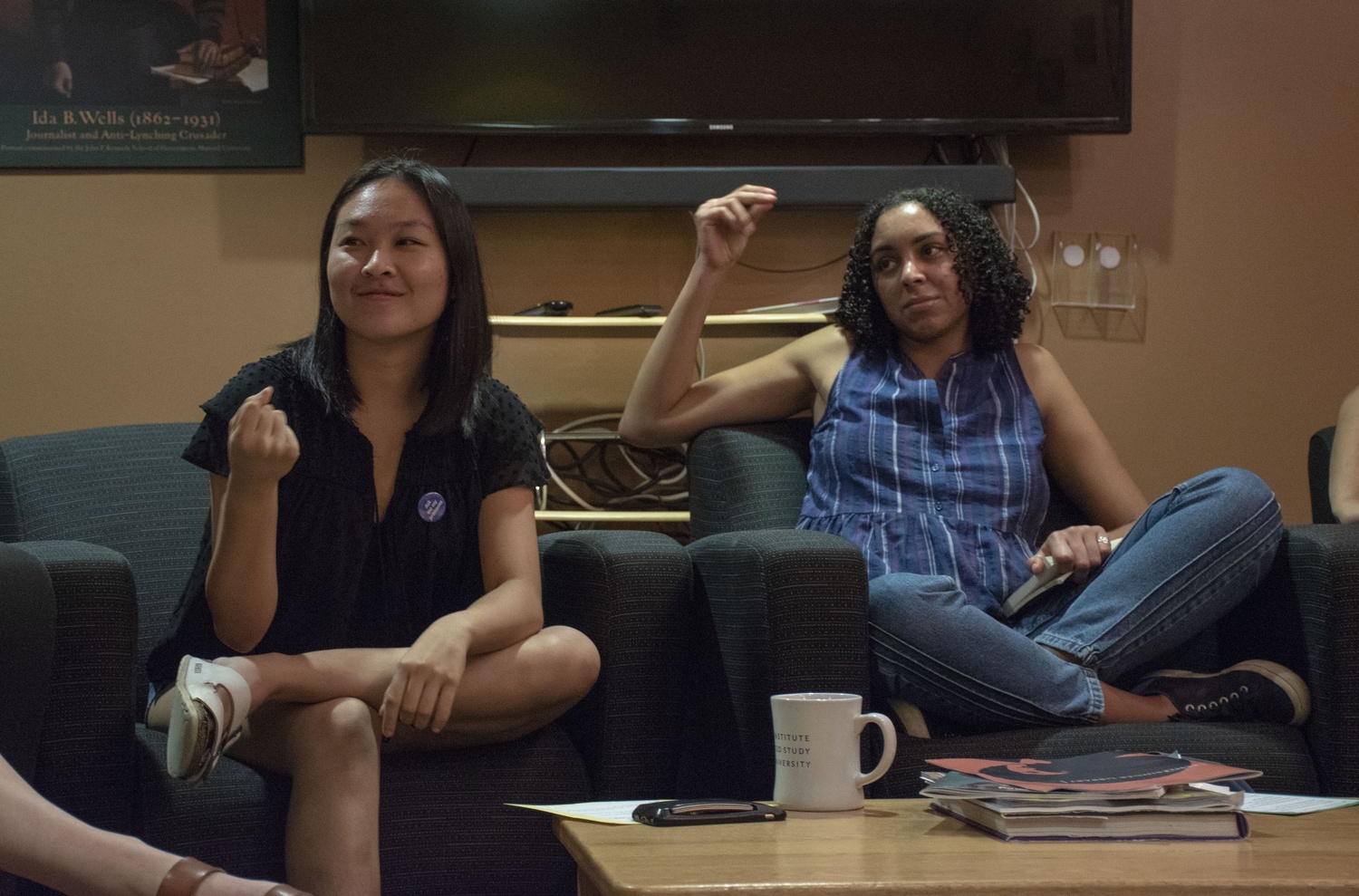
News
Summers Will Not Finish Semester of Teaching as Harvard Investigates Epstein Ties

News
Harvard College Students Report Favoring Divestment from Israel in HUA Survey

News
‘He Should Resign’: Harvard Undergrads Take Hard Line Against Summers Over Epstein Scandal

News
Harvard To Launch New Investigation Into Epstein’s Ties to Summers, Other University Affiliates

News
Harvard Students To Vote on Divestment From Israel in Inaugural HUA Election Survey
Student Panel Discusses Emotional Labor, Psychological Pressure

Scattered across the floor and on couches in the Harvard Women’s Center, over two dozen students sipped tea as they listened to upperclassmen discuss emotional labor and self-care Wednesday night.
The panel formed part of an ongoing Women’s Center series called “Let’s Talk” and meant to educate College students about issues that female-identifying students face.
The panelists, includingAndrew Pérez ’20, Jacqueline L. Kellogg ’19, Catherine Y. Zhang ’19, Salma Abdelrahman ’20, and Ruben E. Reyes Jr. ’19, a former co-chair of the Crimson’s Editorial Board, spoke about the causes of emotional labor and strategies to lessen psychological burdens.
Sociologist Arlie R. Hochschild first coined the term "emotional labor"in the 1980s based on the experience of flight attendants, arguing that their jobs force them to keep passengers happy at their own emotional expense. The term has since taken a broader meaning and now refers to the psychological pressure associated with living up to social expectations, accommodating the feelings of others, or dealing with family pressure.
Abdelrahman said that the expectations placed on Harvard undergraduates to advocate for their communities creates a particular emotional burden on minorities or women to change the University or student organizations from within.
“Everyone has a predetermined script based on their experiences. So often, because you’re a first-gen student, you’re expected to do first-gen advocacy,” Abdelrahman said. “Harvard brings us in to make the institution more inclusive and accessible… sometimes, you have to reject the script you’ve been given.”
In response, Kellogg offered advice for shifting the burden of increasing inclusivity away from minorities.
“If you are a white leader as I am, it is crucial to avoid standard excuses for lack of diversity, like, ‘If people of color don’t come to my meetings, I assume they aren’t interested,’” Kellogg said. “You must figure out why your space is not safe for someand rectify that by having conversations about what you need to do to lessen their emotional labor.”
The panelists also discussed self-care as a reprieve from emotional burdens.
“It’s okay to ease into things,” Pérez said. “You don’t have to do everything right away.”
“I promise that everything is not as high-stakes as it seems,” she added.
Dara M. Badon ’22 said she did not know what emotional labor meant before the talk, but that the definition reflects how she sees herself and her relationships. Badon added that she now has a better understanding of “the different forms that energy draining can happen in, and what ways to acknowledge it and counteract it.”
Janani Krishnan-Jha ’20, a Women’s center intern and organizer of the panel, said that the center hopes to hold similar events in the future.
“We like to make ourselves as supportive a space as possible, whether it’s through these kind of events, official programming events, or just our day-to-day operations as a space that a lot of people come in and out of to work, print, eat brownies and just exist in a wonderful, supportive area,” Krishnan-Jha said.
Want to keep up with breaking news? Subscribe to our email newsletter.
